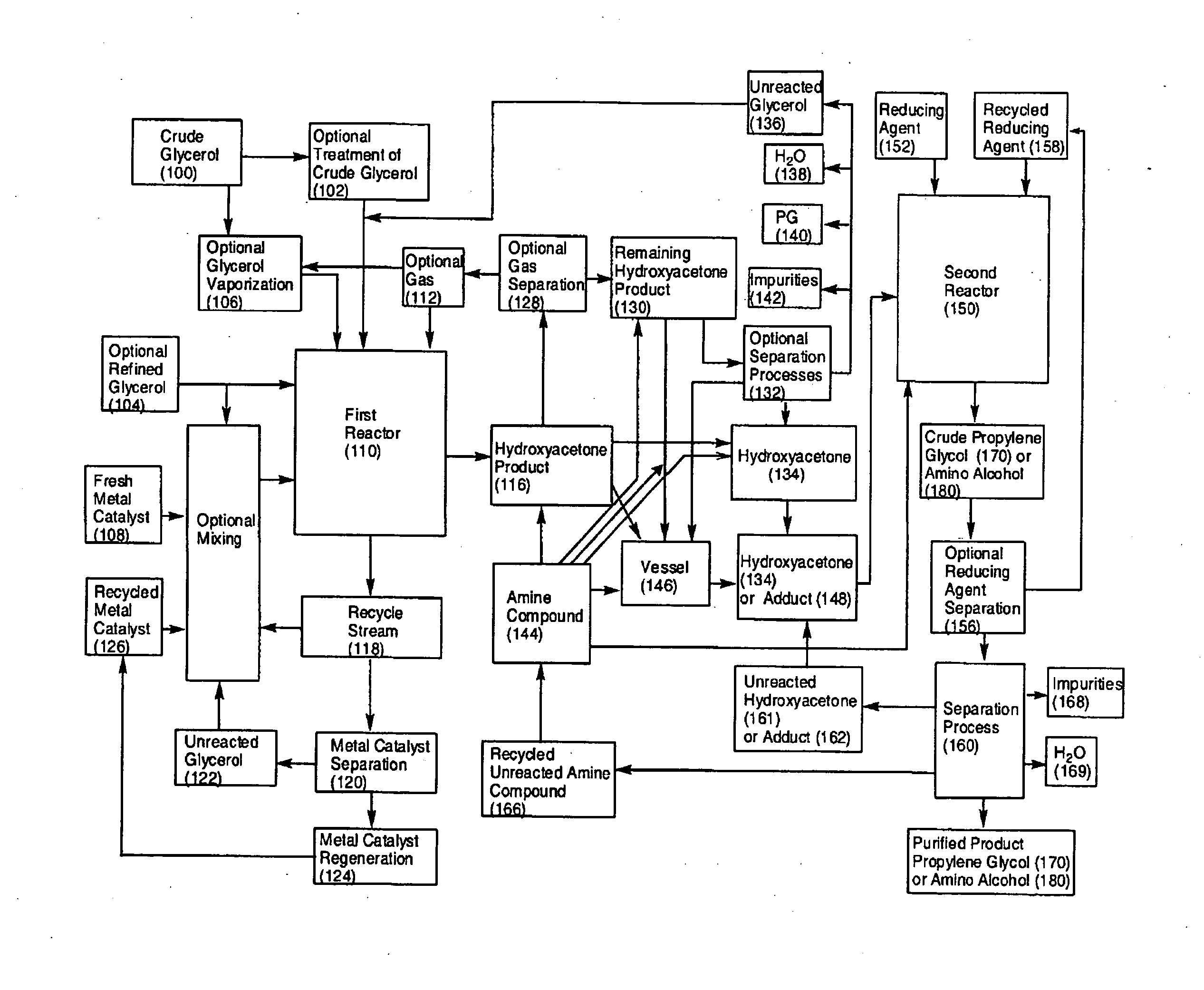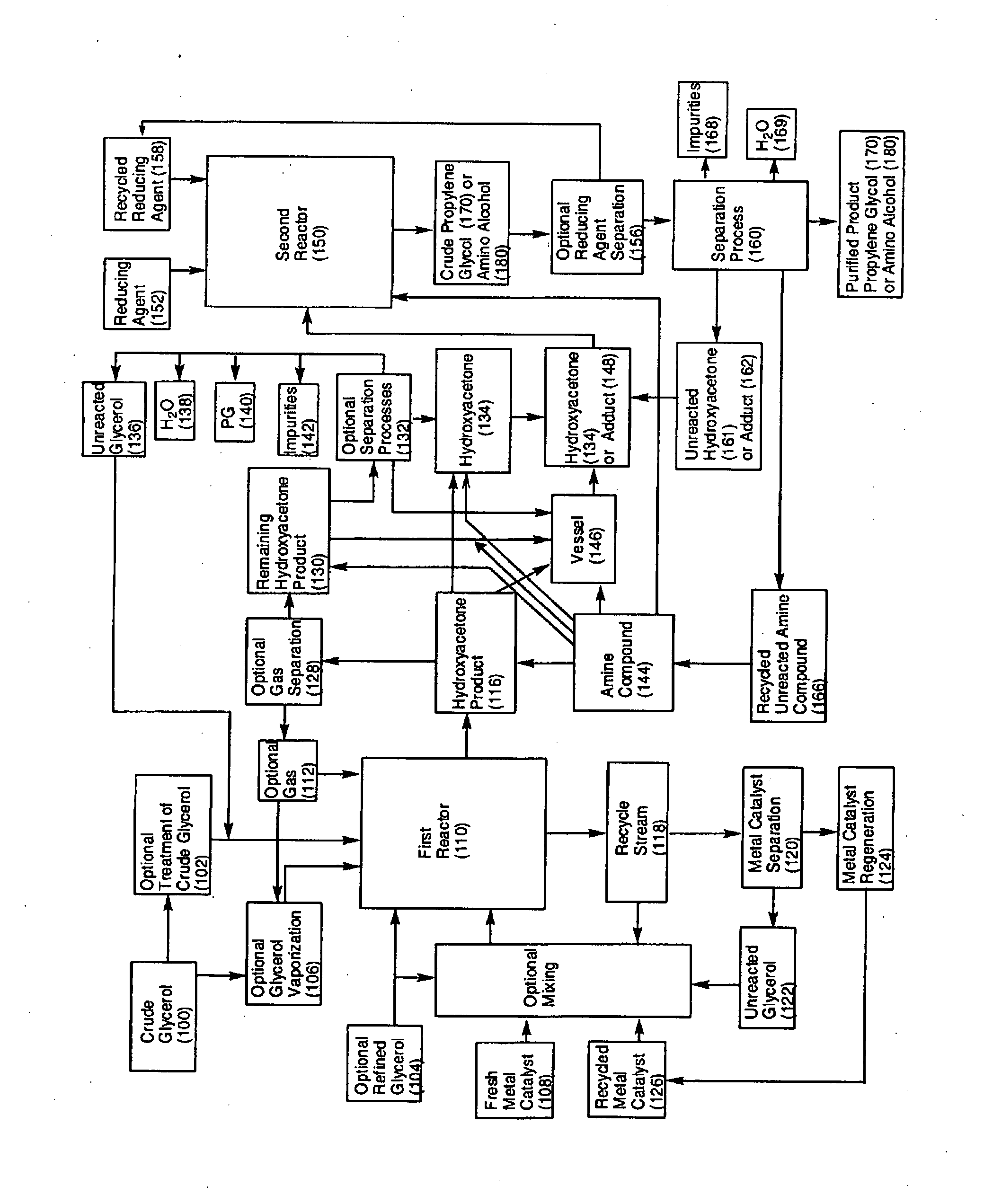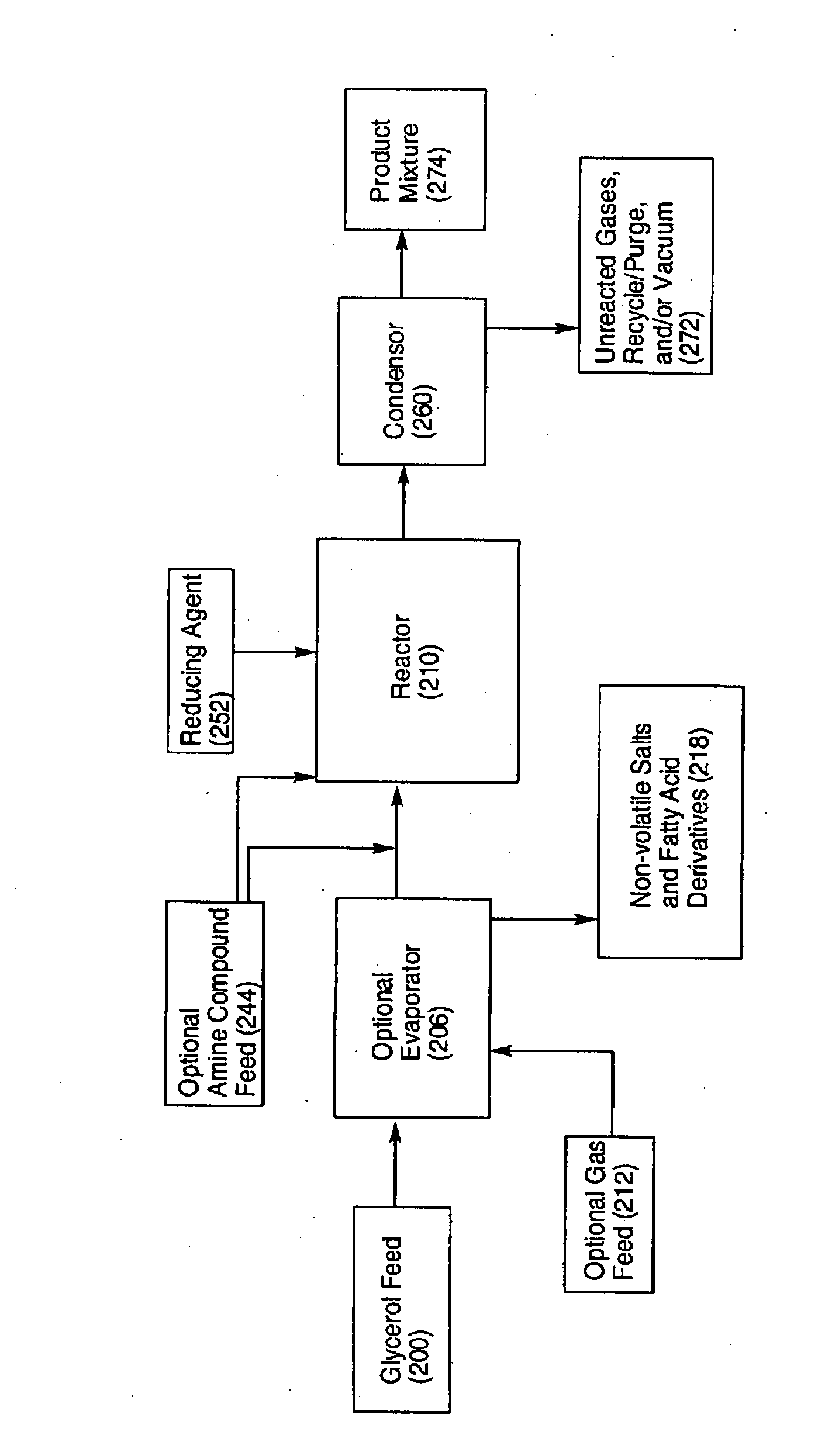Process for the alternating conversion of glycerol to propylene glycol or amino alcohols
a technology of glycerol and amino alcohol, which is applied in the preparation of carbonyl compounds, bulk chemical production, oxygen-containing compounds, etc., can solve the problems of large amount of propylene glycol derived, poor-to-moderate conversion selectivity, and high cost of processes, so as to reduce hydroxyacetone and hydroxyacetone
- Summary
- Abstract
- Description
- Claims
- Application Information
AI Technical Summary
Benefits of technology
Problems solved by technology
Method used
Image
Examples
example 1
[0063] About 300 g of refined glycerol (Superol Brand, P&G Chemicals, USA) and about 8.5 g of copper-chromite catalyst (CU-1886P, Engelhard, USA) were weighed out and transferred into a 500 mL reaction flask equipped with a mechanical stirrer, thermocouple, Dean Stark trap / condenser, and gas inlet. The glassware was assembled so that the volatile hydroxyacetone was removed from the reactor as it formed (i.e. N2 gas sparging) and such that samples could be collected as a function of time for later analysis. The reaction components were heated to about 230° C. with constant stirring at about atmospheric pressure. Samples of the resulting hydroxyacetone product were analyzed on an Agilent 6890N Gas Chromatogram using a SPB-1701 30 m×25 mm I.D.×0.25 μm film column (Supelco). Standards of propylene glycol and hydroxyacetone were used as reference standards. The samples were also analyzed for water content using a model V-200 AquaStar Karl Fisher (EMScience) auto-titrator (freshly calibra...
example 2
[0064] About 375 g of treated glycerol (96% glycerol, P&G Chemicals, USA) and about 11.25 g of copper-chromite catalyst (CU-1886P, Engelhard, USA) were weighed out and transferred into a 500 mL reaction flask equipped with a mechanical stirrer, thermocouple, Dean Stark trap / condenser, and gas inlet. The glassware was assembled so that the volatile hydroxyacetone was removed from the reactor as it formed (i.e. N2 gas sparging). The reaction components were heated to about 230° C. with constant stirring at about atmospheric pressure. Samples of the resulting hydroxyacetone product were collected and analyzed as described in Example 1. About 274.9 g of the hydroxyacetone product (containing about 63.7% hydroxyacetone) was obtained and separated by distillation. About 43 g of the resulting hydroxyacetone (having about 90% purity) was charged to a flask at a temperature of about 10° C. About 120 mL of 30% aqueous ammonium hydroxide was added dropwise with stirring while the reaction temp...
example 3
[0065] About 88 g of crude glycerol (88.7% glycerol, Twin Rivers Technologies, USA) was flashed over into a 500 mL reaction flask equipped with a mechanical stirrer, thermocouple, Dean Stark trap / condenser, and gas inlet. About 9 g of copper-chromite catalyst (CU-1886P, Engelhard, USA) was added to the reactor. The glassware was assembled so that the volatile hydroxyacetone was removed from the reactor as it formed (i.e. N2 gas sparging). Samples of the resulting hydroxyacetone product were collected and analyzed as described in Example 1. About 207.9 g of the hydroxyacetone product (containing about 49.8% hydroxyacetone) was obtained. About 50 g of the hydroxyacetone product was then charged to a flask and about 61 mL of 30% aqueous ammonium hydroxide was added dropwise with stirring at about room temperature. The mixture was stirred for about 90 minutes and reaction progress was monitored using gas chromatography. The resulting adduct was charged to a 300 mL Parr reactor along wit...
PUM
| Property | Measurement | Unit |
|---|---|---|
| Temperature | aaaaa | aaaaa |
| Temperature | aaaaa | aaaaa |
| Temperature | aaaaa | aaaaa |
Abstract
Description
Claims
Application Information
 Login to View More
Login to View More - R&D
- Intellectual Property
- Life Sciences
- Materials
- Tech Scout
- Unparalleled Data Quality
- Higher Quality Content
- 60% Fewer Hallucinations
Browse by: Latest US Patents, China's latest patents, Technical Efficacy Thesaurus, Application Domain, Technology Topic, Popular Technical Reports.
© 2025 PatSnap. All rights reserved.Legal|Privacy policy|Modern Slavery Act Transparency Statement|Sitemap|About US| Contact US: help@patsnap.com



